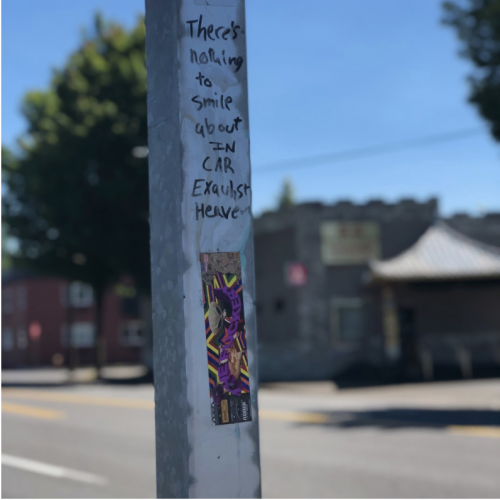
I’m an Environmental Science major, hoping to make the world a more sustainable, less polluted place for all. So why am I spending my summer focused on busses? My community partner OPAL Environmental Justice Organization is currently trying to make reduced bus fares more accessible for Portland’s lower income residents, attain youth passes which make transit free for kids who rely on the bus to get school, and push transit agency leaders to involve the community more in decisions. OPAL has numerous priorities and projects in the works, as the need for social and environmental justice advocates seems to be never ending, but these three actions related to busses are the most pressing at this moment in Portland.
One link between busses and saving the environment is pretty intuitive– getting more people to use shared transportation rather than driving personal vehicles will reduce carbon emissions. But this isn’t OPAL’s only reason for targeting busses.
To understand OPAL’s actions, you have to be familiar with the socio-economic geography of Portland. The downtown area of the city has become extremely gentrified in the past decade, but other parts have been neglected in the economic growth. Those parts are where, not coincidentally, most of the low-income, minority populations reside. These areas are concentrated on the east-side of the city, the half of Portland that has been dubbed by some “The Forgotten Portland.” Not only has economic growth missed this part of the city, but so has the transit system.
The right to transit access and the right to a safe, healthy environment are heavily intertwined. The people who are transit-dependent are also the most likely to live in neighborhoods with disproportionately polluted air and water and therefore face more negative health effects. Factories are more likely to be constructed near their homes, and they have little political capital to stop it because of their race and economic status. Less public funds go into these neighborhoods, so there are both less parks and less transit than the rest of Portland. Access to transit means access to safe, healthy environments.
Therefore, OPAL deems transit their main project to address environmental injustices in east Portland. They do this in a few creative ways, which all are able to not only get people access, but also cultivate community leaders. OPAL’s two main initiatives are Bus Riders Unite (BRU) and Youth Environmental Justice Alliance (YEJA). BRU is a community organizing group that fights to get more environmentally friendly transit to low income areas of Portland. All of the leaders of the movement are people of color from within the community that OPAL has empowered with the resources and ability to be an organizer. YEJA is OPAL’s connection to the next generation, which focuses on creating future community leaders thatare educated about the environmental justice issues Portland faces. The idea was developed by youth in the community themselves, and OPAL made the vision a reality by providing trainings and workshops.
So yes, I am working at an environmental justice organization. But I am also working at an organization that fights for racial and social justice, because in my first week here I’ve already learned that without one, you can’t successfully advocate for the others.

